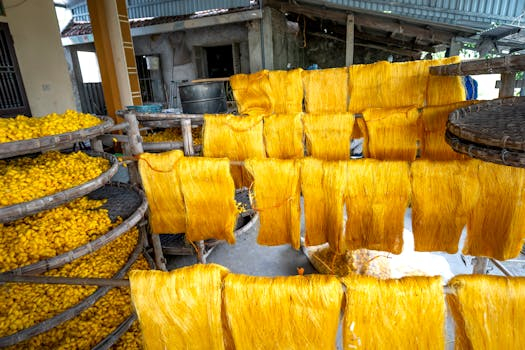Sustainable Production Practices in the Automotive Industry
>
Sustainable production practices have been gaining traction in various industries, and the automotive industry is no exception. With growing concerns over climate change and depleting resources, there is a growing demand for eco-friendly and socially responsible production methods in the automotive sector. In this article, we will delve into the concept of sustainable production and how it is being implemented in the automotive industry. From innovative technologies to ethical sourcing, we will explore the various practices that are making the automotive industry more sustainable.
What is Sustainable Production?
Sustainable production, also known as sustainable manufacturing, is the process of producing goods and services in an environmentally friendly and socially responsible manner. This approach aims to minimize the negative impact on the environment, conserve natural resources, and promote ethical and fair treatment of workers. The goal of sustainable production is to achieve economic growth and development without compromising the needs of future generations. In the automotive industry, this means finding ways to produce vehicles while reducing carbon emissions and conserving resources.
Implementing Sustainable Production in the Automotive Industry
1. Sustainable Materials
Producing vehicles requires a significant amount of raw materials that are often extracted from the earth. To reduce the environmental impact, automotive companies are actively seeking sustainable materials. One of the most promising materials is carbon fiber. It is lightweight, durable, and has a lower carbon footprint compared to traditional materials like steel or aluminum. Some companies are also experimenting with bio-based materials, such as hemp and soy, as alternatives to plastic components in vehicles.
2. Reducing Waste
The production process of vehicles generates a significant amount of waste, which can harm the environment if not disposed of properly. To tackle this, the automotive industry is adopting a circular economy approach, where materials are recycled and reused instead of being disposed of. For example, Ford has implemented closed-loop recycling systems, where plastic parts are recycled and used in future vehicle production. This not only reduces waste but also decreases the need for new materials, thus conserving resources.
3. Energy-Efficient Production
The production of vehicles consumes a considerable amount of energy, mainly in the form of electricity. To reduce their carbon footprint, automotive companies are investing in renewable energy sources, such as solar and wind power, to power their production facilities. Additionally, energy-efficient technologies, such as LED lighting and smart energy management systems, are being implemented to reduce energy consumption. Toyota, for example, has reduced its energy consumption by 50% through these measures.
4. Ethical Sourcing
Apart from environmental sustainability, ethical and social responsibility is also a crucial aspect of sustainable production. Automotive companies are now more conscious of their supply chains and are ensuring ethical sourcing of raw materials, such as conflict-free minerals and responsibly harvested timber. They are also implementing fair labor practices and ensuring the safety and well-being of workers in their facilities, as well as those in their supply chain.
The Benefits of Sustainable Production in the Automotive Industry
The implementation of sustainable production practices in the automotive industry brings about many benefits. Firstly, it can significantly reduce the industry’s carbon footprint, making it more environmentally friendly. This, in turn, can improve the industry’s reputation and attract more environmentally conscious consumers. Moreover, adopting sustainable practices can also lead to cost savings for companies through the reduction of waste and energy consumption. It can also foster innovation and drive the development of new technologies in the industry.
Challenges and Roadblocks
While the implementation of sustainable production practices in the automotive industry is a step in the right direction, there are still challenges and roadblocks to overcome. One major hurdle is the high initial cost of implementing sustainable practices. It requires significant investment in new technologies, materials, and training for employees. Additionally, the shift towards sustainability may require changes in the entire supply chain, which can be a lengthy and challenging process.
Conclusion
Sustainable production practices are slowly but surely becoming the norm in the automotive industry. With the advancements in technology and increasing consumer demand for environmentally friendly products, it is only a matter of time before sustainability becomes a standard practice in the production of vehicles. The industry still has a long way to go, but the steps taken so far are promising, and the future looks bright for a more sustainable automotive sector.


